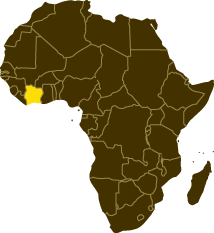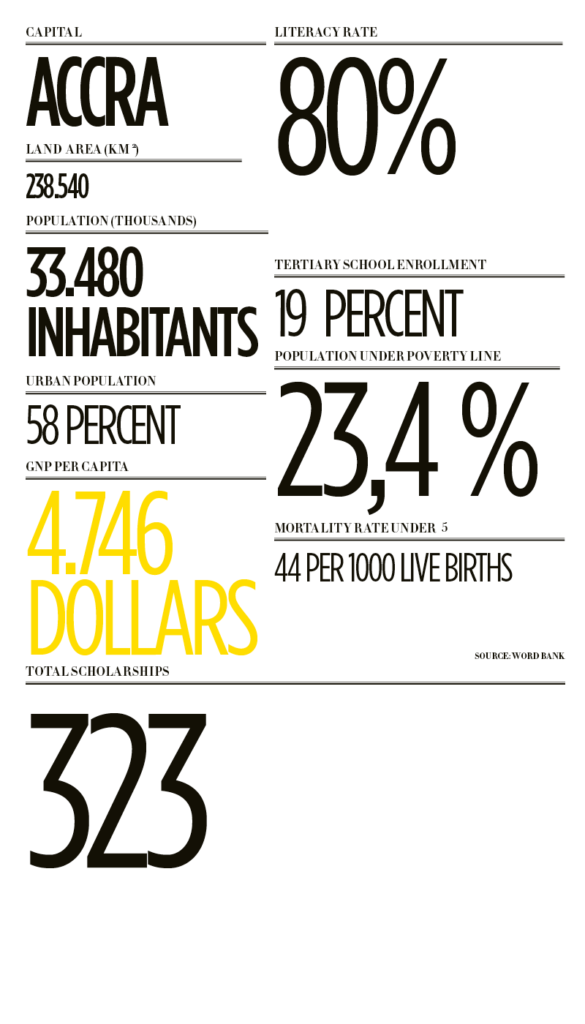Ghana, with a population of over 33 million inhabitants, is the most populated country in Western Africa after Nigeria. With an improvement of democratic governance, the efficiency of the public institutions and a strong economic growth, the political situation in Ghana, in the last two decades, has evolved into a stable and mature democracy to the point of being rated 3rd in freedom of the press among African countries. In July 2011, according to the World Bank ranking, the country has become a “lower middle income Country”. With the exception of child and birth mortality, of hygienic-health services and occupation, Ghana has taken important steps toward fulfilling the Millennium Development Goals, reaching important objectives in the reduction of extreme poverty, the access to drinkable water, in the war against malnutrition, in favoring education and in equal opportunities.
It is a Presidential Republic, driven from 2017 by Nana Afuku-Addo, a leader promoting the reform of educational system, which made free secondary school.
The Edu Foundation established a partnership with the University of Ghana, Accra, in 2013, and with the Kwame University for Science and Technology (KNUST) in Kumasi in 2015: 323 students are beneficiaries of the scholarships, mainly in medical and engineering studies. 94 have already graduated.

Fondazione Edu works in Ghana with the following public Universities as partners:
UNIVERSITY OF GHANA
Legon Boundary Accra, Ghana Tel. +233.30.2500381 www.ug.edu.gh
KWAME NKRUMAH UNIVERISTY FOR SCIENCE AND TECHNOLOGY
Accra Road – Kumasi, Ghana Tel. +233 322060331 www.knust.edu.gh

